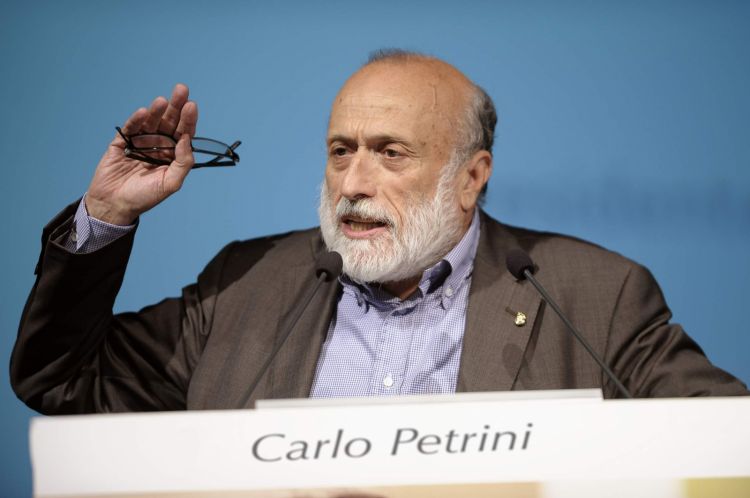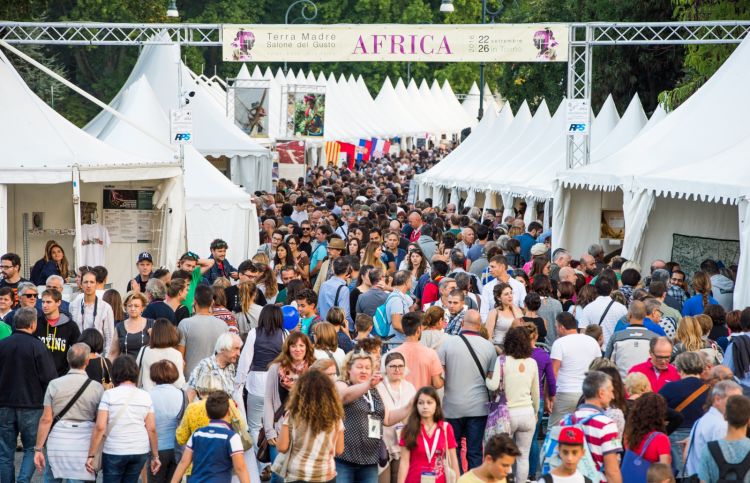29-06-2020
Carlin Petrini: it’s a momentous turning point. Restaurants need everyone’s support
«We risk losing osterias and small shops, characteristic emblems of Italy. Let’s protect them and support local agriculture». An interview with the founder of Slow Food

Carlo Petrini, aka Carlin, born in Bra (Cuneo), 71 on June 22nd. On December 9th 1989 he founded the international Slow Food movement
Restaurants and agriculture, two lasting industries, have been hit hard during the black quarter of Covid-19. We’ve discussed this with the founder of Slow Food, Salone del Gusto and Terra Madre, on the World Environment Day.
Good morning Petrini, the restaurant industry is facing a difficult moment. What are your thoughts?
Staying closed for three months is a very long time for any business, let’s not speak of the most fragile ones. All these restaurants brought to their knees should first of all create a strong sense of solidarity. It would be nice, for instance, if a good part of the wine market would give some extra time to restaurateurs to get paid. I see some are already doing so, good.
As Slow Food have you already made some official proposals?
We have asked the Ministry to grant the reddito di impresa, a concrete compensation for all the restaurants that support local economy, buy from local suppliers, use regional products. This income would reinforce the weakest agricultural supply chains. At this time we must pay a lot of attention even to small things. It would be a small yet significant contribution.
A few days ago Norbert Niederkofler sent an alert: for their peculiar sharing and relationship-focused format, trattorias and osterias are among the businesses that could pay the highest price.
There’s no doubt this is a momentous turning point. Osterias, trattorias and village small shops are so-called relational-goods. They’re in fact crucial for our culture because they have an important task, that of creating relationships and therefore contributing to structuring a community. We risk losing this crucial component of the Italian identity. Our heritage would disappear if the economy didn’t understand it must change their direction, too often only focused on profit alone.
Many, like Corrado Assenza and Josko Gravner, state that there is a connection between nature and health crisis. They call for a return to a virtuous agriculture.
These are fair and shareable thoughts. The relationship between countryside and city must change necessarily, an important architect like Stefano Boeri recently explained this. The production of food must be focused more and more on local agriculture. And indeed many large cities are developing vegetable gardens within them: take the urban gardening movement in New York. Favouring a stronger relationship between agriculture and cities is one of the topics that we must hold dear now.

The next edition of Terra Madre-Salone del Gusto should take place from the 8th to the 12th of October. "I don’t know how we will manage to organise it", Carlin admits
More attention to short supply chains?
Yes, because by reinforcing the local economy you support the networks of virtuous farmers. Small but essential networks because they’re in contrast with mass agriculture or the large use of chemicals, which have already had a huge impact on us. Moreover, the months of crisis have created large profits, especially for large retail chains and online shopping, two realities that have little to do with small farms, which however give prestige to the country.
Early in October there should be Terra Madre and Salone del Gusto.
We’re deciding, we’re discussing it right now. Terra Madre requires the arrival of communities from all around the world but in October it’s likely it still won’t be possible to have so many people travel. I don’t know if we will be able to organise this event, to be honest. We’re defining possible countermeasures.
They say we will come out as better people after this.
For now, I believe the crisis is mostly generating wickedness and tensions. People seem focused on themselves, not keen on taking care of those who are worse off. But without solidarity and commons sense, there’s no way out. As Gramsci said, we must be pessimist because of intelligence and optimist because of will.
Translated into English by Slawka G. Scarso
Zanattamente buono
Gabriele Zanatta’s opinion: on establishments, chefs and trends in Italy and the world
born in Milan, 1973, freelance journalist, coordinator of Identità Golose World restaurant guidebook since 2007, he is a contributor for several magazines and teaches History of gastronomy and Culinary global trends into universities and institutes. Author of "Cracco in Galleria" (Phaidon e L'ippocampo) and "Contemporary Milanese Cooking" (Guido Tommasi). Instagram @gabrielezanatt
Author's articles list